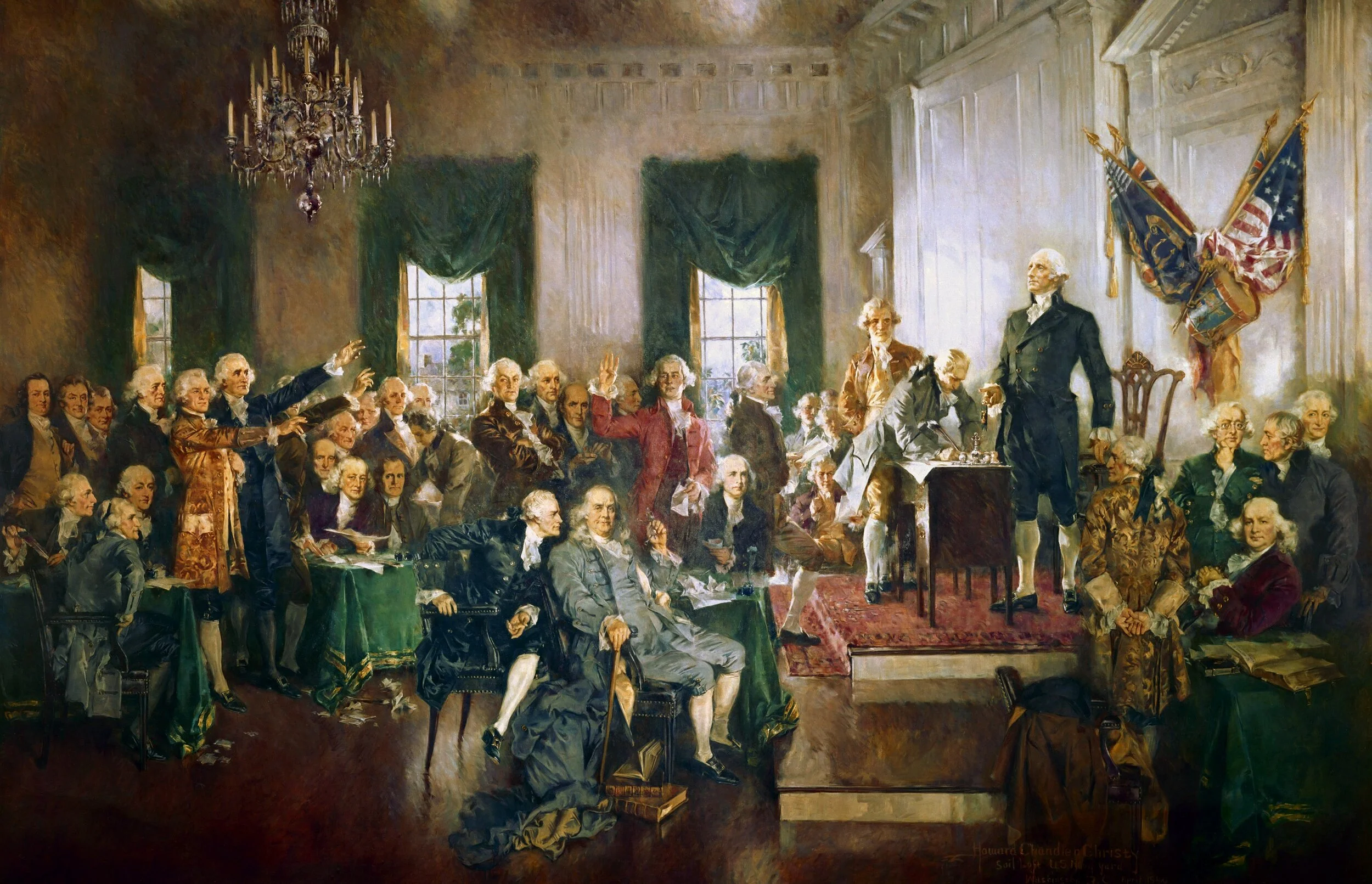House Hunting & the Constitution
/Imagine a young couple that moves into a small, affordable one-bedroom apartment,. At first it is cozy and fun. The size is adequate and the smallness makes it easier to clean and furnish.. After a year or so, when they have acquired a shelf of books, some camping gear or other hobby-related equipment, more kitchen appliances, and maybe a child or two, the house begins to feel cramped and crowded..
You can imagine that, at this point, one or the other of the happy couple might suggest that it is time to consider finding a new home.
If the other partner is reasonable, he or she will say, “OK. Let’s think about it. There are things about our current house that I like and I wouldn’t want to lose in a new place. We are close to my job, and close to the stores where we shop. I really enjoy how the morning sun shines through the kitchen windows. But there are lots of houses and apartments out there. There’s no harm in us looking around and seeing if we can find something we like better.”
If the other partner is unreasonable, he or she might say, “What? We agreed to make important decisions together, and now you’re trying to force this big change on me! The last thing I want to do when I get home in the evening is go back out looking at houses. This is crazy! I’m not sleeping on the bare dirt in the middle of winter no matter what you say. You can go be homeless if you want to, but you’re not taking me with you!”
Think about how the unreasonable partner has distorted the matter at hand. There is no suggestion that they abandon all shelter and move outdoors. The partner making the suggestion is not forcing anything upon the other — but only saying they should look together. There are, in fact, many alternatives to their current address in their community. And suggesting that they look around does not obligate them to accept an undesirable alternative, to to move at all.
The unreasonable partner in this scenario is a model for many Americans when the Constitution is being discussed.
The old Constitution of 1787 no longer serves the nation well. A constitution better suited to the United states in the 21st Century is needed. This has been stated many times — sometimes by spokespersons for fringe political or social groups, but just as often from tenured law professors, respected journalists, and other serious and respectable people.
And like the unreasonable partner in the crowded apartment, reluctant citizens push back with absurd arguments. They insist that even considering replacing the Constitution means no government at all. They assume that the people suggestion a conversation are forcing their own vision on them. They talk about the old Constitution is if it is the only constitution that exists, and the only constitution that can possibly exist. They assume that any change at all, no matter now small and carefully considered, will lead to disaster.
The first requirement for a reasonable consideration of the Constitution is recognizing that “The Constitution” is not unique in the world. Every state has a constitution. Most countries in the world have a constitution. Clubs and organizations and neighborhood associations all have constitutions. And these constitutions — which number in the tens of thousands — are only those that actually exist. Even more constitutions, including one that works better than all the others, can be imagined.
The next requirement is accepting that the act of considering a change to the Constitution is not the same as throwing order and rule of law out the window. The suggestion that the couple look at other apartments did not mean they would become homeless. Similarly, accepting reform of the constitution would mean looking for a new set of rules that would work better than the old set of rules.
When the couple agreed to look for a new home, they did not immediately pack up and move out of their old place. They did not sleep in their car while they were looking. They stayed with what they had and did not move until they found something that was better. There was no risk in accepting the possibility of change.
And the same would be true for a change to the Constitution. The fear that any change would be for the worst is easily solved. Simply set a rule that no single set of people can write new rules and then impose them on the rest of the country. Not Congress, in other words. That would prevent a worse version of the national Constitution being imposed by secret negotiations.
It is likely, if the young couple agreed to look for a new home, that in a reasonable amount of time they would find a place bigger than their old one, in a nice neighborhood, with the same sunshiny windows. Once they found a place that met all their hopes and was clearly better than their old place, the decision to move would suddenly be easy. Their fear of uncertainty would be washed away with the tangible certainty of the new place.
Writing a new constitution for 21st Century America would not be easy. The new one is not out there waiting to be found. It would have to be written. It would demand time and effort and coordination. It would especially require good behavior from all citizens. It would require them to set their hats and flags and shouted slogans aside and attend to facts and details.
But it would not require any more than Theodore Roosevelt had in mind when he wrote: “The people who say that they have not time to attend to politics are simply saying that they are unfit to live in a free community.”










